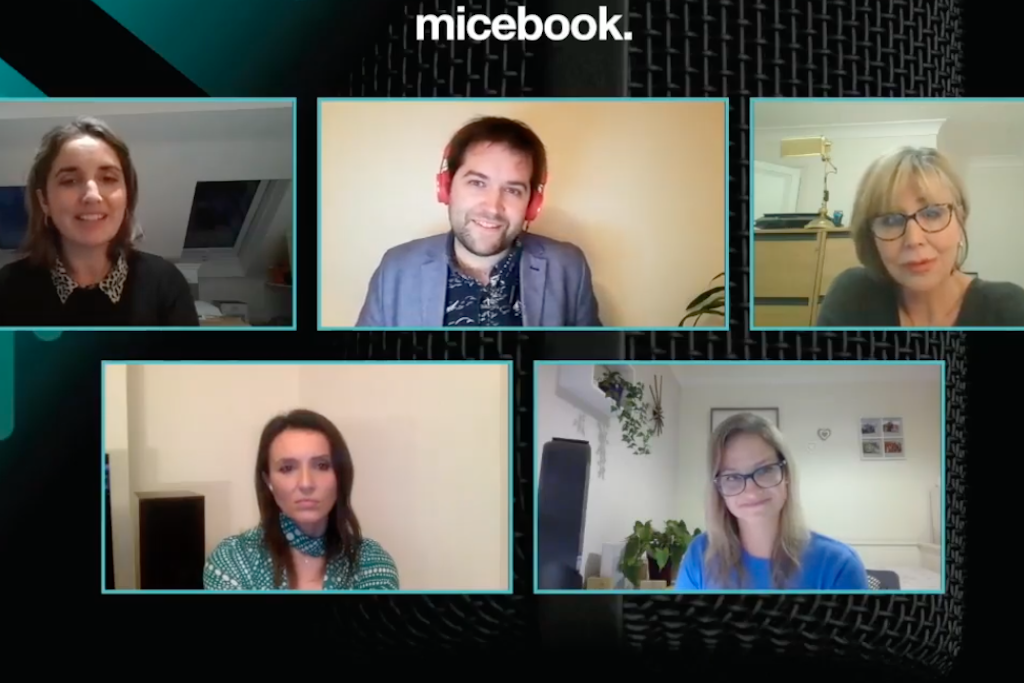Luxury travel brands will need to adapt their language to be more authentic, responsible and personal to engage travellers on a more emotional level post-pandemic, according to a panel speaking at micebook’s incentive and luxury event last week.
The session, which was inspired by a new report on the language of luxury by Black Tomato Studio, featured Black Tomato Studio’s co-head Adam Larter on a panel alongside Iconic Luxury Hotels’ Lisa Lernoux-Dock, Just The Letter B’s Henriette Speed and Mason Rose’s Kym Jenkins.
Here, we share a few key takeaways… (You can also watch a full recording of the session on the micebook Voice forum here.)
*Language is constantly changing, and has to change according to Larter, because we quickly become tired of buzzwords. “It’s funny how words and phrases that are new and exciting suddenly become old-fashioned,” he said “If you want to be seen as authentic, which is the way the whole travel industry is moving, you need to reflect that in the words you use, both written and spoken. If those words are boastful or arrogant, or you are just trying to shout over people, you are reflecting that personality back on yourself.”
*We can now speak to luxury consumers on a more personal level because we know much more about them. “It’s not rocket science, but it’s often skipped over. We now we have an opportunity to have a conversation rather than talk at people. Luxury language used to talk at you, and above you. If you go back and look at classic advertising, luxury brands have to referenced high culture or use hyperbolic , flowery, Thomas Hardy kind of language,” said Larter. “Where language used to be – there was an assumption that the luxury consumer was one particular demographic or person. We say that an ultra-high net worth individual is both the Queen and Kanye West, so two very different personalities that share nothing in the way that they talk and yet we are supposed to communicate with both of these people in the same way. By being able to follow these people on social media, we know how these people talk so can speak their language.”
*Speed talked about how luxury incentives have evolved to become less about the Champagne and luxury resorts, to being more focused on emotional connections and experiences. “The pandemic heightened that movement. People want a more emotional connection when they travel. We may all be travelling less so it has to be meaningful. That is what we are being asked in the few briefs that are coming through for 2021 and beyond. People want authenticity. How we speak to them about the experience and market ourselves has to be authentic and reflect that. It’s much more of a dialogue,” she said.
*Jenkins and Lernoux-Dock agreed that the two-way dialogue is much more important in the selling process now and that people will need to be more thoughtful in their language. “Travel may be a luxury in itself in future. You cannot have luxury without kindness. You need to be thoughtful of the person or group you are dealing with,” said Jenkins. Lernoux-Dock added: “If anything good has come of the pandemic, it’s that we are kinder with each other. Honesty and authenticity and having a truly honest message is important. And also empathy – really listening to your clients and trying to figure out what they really want. Not thinking about your own position but thinking about theirs.”
*Speed said that getting the balance between the safety and inspiration aspects will be important. “It can feel a bit clinical if all you talk about is face masks and social distancing and what you are doing for Covid. We need to tell stories and inspire clients while reassuring them it is safe to travel and go on incentives.”
*Larter said it is very important to speak authentically about what it is like to visit a destination now. “Our industry needs to spend time getting out there and re-experiencing what places are like since Covid as it will come across as more trustworthy.”
*He concluded: “We came up with this report because we love this industry and we want next year to be a strong year and bounce back. We all really need to sell next year. It’s the year we need to sell more than ever, but no-one has any money to create new assets or videos. Language doesn’t cost anything. Look at your language and don’t be scared – you can really stand out with some great words. A great well-written tweet doesn’t cost a thing. If you are sending something out and you are not inspired, then your audience won’t be either.”

